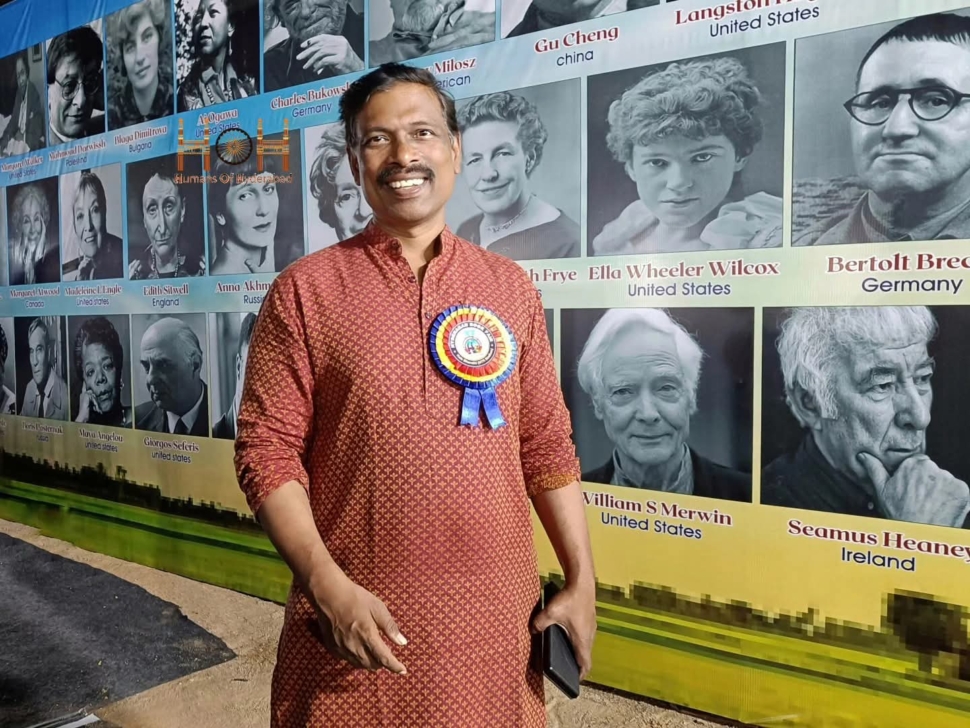“I believe culture isn’t something we just preserve in museums. It’s something we live in every day.
I was born in Chinna Pendyal, a village in the Warangal district of Telangana. I grew up listening to folk songs, local stories, and the dialects spoken by people around me, and these continue to shape how I view culture and language today.
I hold a Master’s degree in Psychology from Osmania University, an M.Ed. from Kakatiya University, and a PhD in Telugu Literature from Potti Sriramulu Telugu University. My doctoral research focused on the representation of folklore in Telugu cinema. Alongside my work as a government officer, I’ve also been active as a poet, writer, and critic, always staying connected to the language and stories of the people.
I joined government service in 1996 and served in various cultural and communication roles. After the formation of Telangana in 2014, I was appointed Director of the Department of Language and Culture. It gave me an opportunity to contribute directly to how our state nurtures its cultural identity.
Since then, I’ve had the chance to work closely with folk artists, poets, and performers, especially those from rural and indigenous communities. The department has documented and promoted oral and performance traditions like Oggu Katha, Burrakatha, and Bathukamma songs. We’ve also supported art forms like Perini Natyam, Dappu, Oggu Dholu, and the Gusadi tribal dance of Adilabad through festivals, training programmes, and recognition initiatives.
These aren’t just traditions; they’re part of everyday life in many communities and carry forward histories that aren’t always found in textbooks.
Over the years, I’ve written and published several books including Ontarēkarana, Ooriki Poyinā Yalla, Sushupthi Nunchi, and a research monograph titled Telugu Cinemallo Bhasha-Sahityam-Samskruti. Each work reflects a different phase of my engagement with Telugu language and culture.
I’m encouraged by the way many young Telugu poets are finding platforms to express themselves today. Literature doesn’t belong to one generation. It grows with the people who write, read, and live it.
Some people call me a magician of words. I don’t think of it that way. I just try to listen, understand, and make space for others to speak in their own language and in their own way.
Culture in Telangana is not a display. It’s part of how people live, speak, and share every day.”
— Dr. Harikrishna Mamidi, Director, Department of Language and Culture, Telangana
